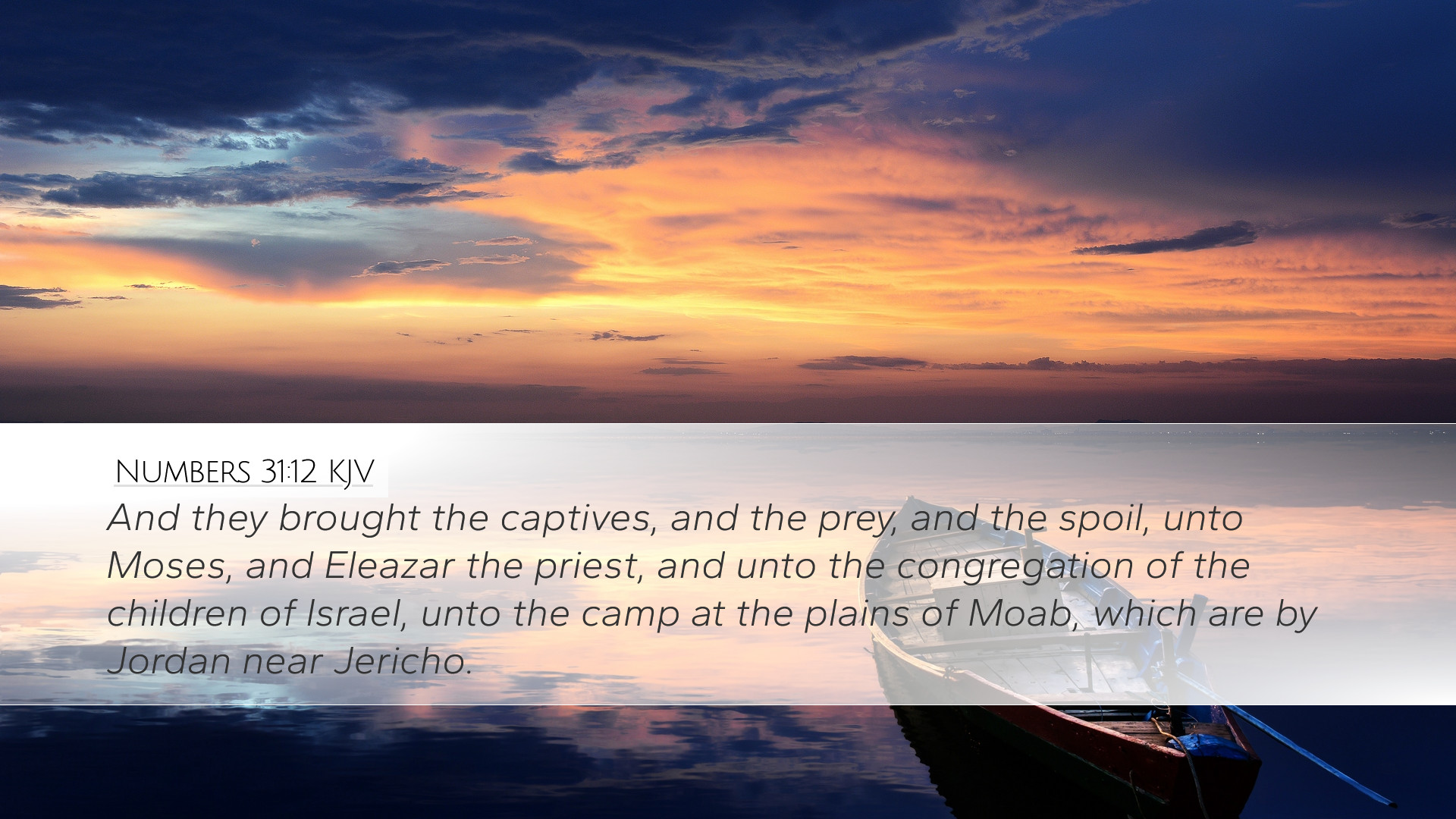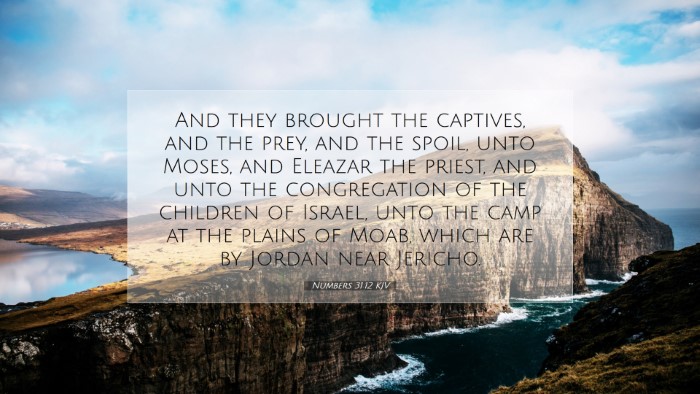Commentary on Numbers 31:12
Verse: Numbers 31:12 - "And they brought the captives, and the prey, and the spoil unto Moses, and Eleazar the priest, and unto the congregation of the children of Israel, unto the camp at the plains of Moab."
Introduction
This verse concludes the account of the Israelites' victory over the Midianites, showcasing the process of returning spoils and captives to their leadership. The act of presenting these to Moses and Eleazar signifies the importance of acknowledging God’s sovereignty in their victories and the subsequent distribution of goods. It reveals key themes of accountability, divine justice, and communal responsibility.
Contextual Overview
The narrative in Numbers 31 centers on God’s command to take vengeance on the Midianites due to their leading Israel into sin (Numbers 25). Under Moses' leadership, the Israelites engaged in battle, resulting in a decisive victory. The aftermath of this warfare is critical for understanding Israel's relationship with God and their collective identity as a people marked by divine blessing and moral obligation.
Theological Significance
This verse encapsulates several theological elements outlined in various public domain commentaries:
- Divine Justice: Clarke emphasizes that this battle was a fulfillment of God’s judgment against the Midianites for their seduction of Israel. The acknowledgment of spoils signifies the moral responsibility Israel holds to carry out divine retribution against unholiness.
- Community and Leadership: Barnes highlights the role of Moses and Eleazar as representatives of both spiritual and civil authority. By bringing the spoils to them, the warriors acknowledged the leadership structure ordained by God and their collective identity as a nation under the covenant.
- Faithfulness in Reporting: Matthew Henry points out that the returning of captives and spoils was not merely logistical but a matter of obedience and faithfulness. It depicted a model of stewardship where every victory and material gain was to be reported and honored in the congregation.
Implications for Modern Readers
For pastors, students, theologians, and Bible scholars, Numbers 31:12 offers rich implications for contemporary application:
- Stewardship of God's Blessings: Just as Israel was called to bring forth the blessings received from battle, the modern believer is called to recognize and present their blessings back to God through acts of worship, service, and community support.
- Understanding Divine Command: Reflection on God’s commands and their consequences should guide the church today. As the Israelites acted against their foes in obedience to God's word, believers must discern how to act against prevailing moral and spiritual challenges in faithfulness to divine instruction.
- Leadership Accountability: The dual leadership of Moses and Eleazar suggests the collaborative effort that is vital within church leadership. Pastors and leaders must operate under God’s guidance, promoting truth, justice, and collective responsibility within the congregation.
Conclusion
Numbers 31:12 serves as a significant reminder of the importance of returning to God what is rightfully His, both in terms of material possessions and spiritual victories. As outlined in the timeless commentaries of Matthew Henry, Albert Barnes, and Adam Clarke, this verse embodies deep truths about divine justice, accountability, and community. The faithful reporting of the spoils after battle serves as an enduring call for today’s believers to remain engaged in the life-giving work of God, honoring His presence in every aspect of their lives.


